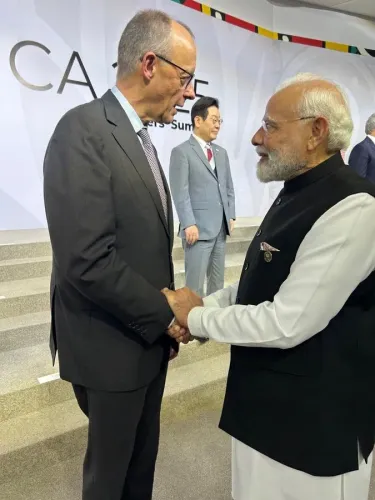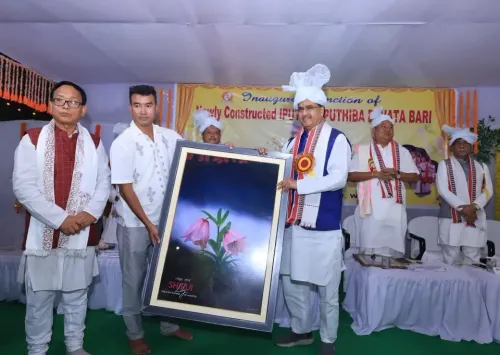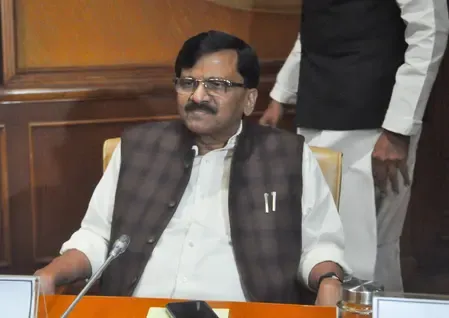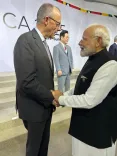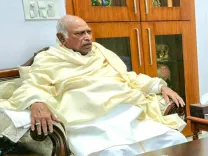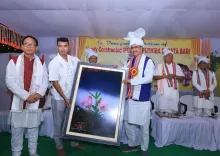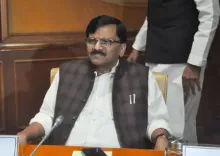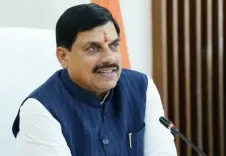How is PM Modi Advocating for Global Cooperation at the G20 Johannesburg Summit?

Synopsis
Key Takeaways
- Global Cooperation: PM Modi emphasized the need for collective action to tackle global challenges.
- Disaster Resilience: Proposed a shift from response-centric to development-centric disaster management.
- Innovative Initiatives: Introduced several new initiatives to bolster sustainability and cooperation.
- Focus on Inclusivity: Urged for a stronger representation of the Global South in global discussions.
- Commitment to Sustainability: Highlighted India's ongoing efforts in clean energy and food security.
New Delhi/Johannesburg, Nov 22 (NationPress) Prime Minister Narendra Modi emphasized the necessity for enhanced global collaboration, disaster resilience, and sustainable development during his address at both sessions of the inaugural day of the G20 Leaders' Summit in Johannesburg.
In a series of updates on X, along with detailed comments released by the Prime Minister's Office, PM Modi showcased India's human-centric growth strategy and urged the group to embrace innovative development metrics that harmonize progress with ecological balance.
In his remarks on X, the Prime Minister noted that the second session of the summit concentrated on fostering resilience in the face of disasters and climate change, ensuring equitable energy transitions, and fortifying global food systems. "India has been proactively engaged in these areas, crafting a future that prioritizes humanity and inclusivity," he stated.
Reiterating India's enduring belief that significant global issues necessitate unified global responses, PM Modi mentioned that this principle inspired India to form the Disaster Risk Reduction Working Group during its G20 presidency. He asserted that disaster management should evolve from a solely "response-centric" model to one that is "development-centric," highlighting the Coalition for Disaster Resilient Infrastructure as a case in point.
The Prime Minister also suggested establishing a G20 Open Satellite Data Partnership to enhance access to satellite data and analysis from G20 space agencies for developing nations, particularly in the Global South. He pointed out that better access to space-based tools would support countries in agriculture, fisheries, and disaster management.
Reaffirming India's dedication to sustainability and clean energy, PM Modi introduced a G20 Critical Minerals Circularity Initiative aimed at advancing recycling, urban mining, second-life batteries, and related innovations to secure supply chains and foster cleaner development pathways.
Describing climate change as one of the gravest threats to food security, the Prime Minister underscored India’s initiatives to protect vulnerable populations through the world’s largest food security and nutrition program, the largest health insurance scheme, and a comprehensive crop insurance framework. He also highlighted India’s efforts to promote Shree Anna (millets) for nutritional and climate resilience.
According to a comprehensive press release from the PMO, the Prime Minister utilized the opening session—entitled "Inclusive and sustainable economic growth leaving no one behind"—to commend the South African presidency's achievements in areas such as skilled migration, tourism, food security, AI, digital innovation, and women’s empowerment. He remarked that many significant resolutions made during India’s G20 presidency in New Delhi have been effectively advanced.
As the G20 meeting unfolds for the first time on African soil, PM Modi asserted that this moment necessitates a reevaluation of traditional development measures, advocating that growth should not compromise ecological integrity. He urged the group to draw inspiration from India’s civilizational tenet of Integral Humanism, a philosophy uniting the interests of individuals, society, and nature.
Presenting a forward-looking agenda for the G20, the Prime Minister proposed six new initiatives for consideration:
1. G20 Global Traditional Knowledge Repository to safeguard and utilize humanity's collective wisdom.
2. G20 Africa Skills Multiplier to train one million certified trainers dedicated to skilling African youth and fostering long-term regional capabilities.
3. G20 Global Healthcare Response Team, consisting of experts from all member nations, ready for deployment during international health crises.
4. G20 Open Satellite Data Partnership to broaden access to space-based data across development sectors.
5. G20 Critical Minerals Circularity Initiative to enhance innovation in recycling, urban mining, and sustainable battery usage.
6. G20 Initiative on Countering the Drug Terror Nexus to address trafficking and disrupt the drug-terror economy.
In the session themed "A Resilient World – G20 Contribution to Disaster Risk Reduction; Climate Change; Just Energy Transition; Food Systems", PM Modi welcomed the continuation of India's Disaster Risk Reduction Working Group and urged wealthier nations to fulfill commitments regarding accessible climate finance and technology transfer to developing countries.
He also called for a unified effort towards food security and recommended that the Deccan Principles on Food Security, established during India’s presidency, be employed to develop a G20 roadmap for future initiatives.
Advocating for a more equitable global governance framework, the Prime Minister stressed the necessity for a stronger representation of the Global South. He recalled that the African Union's inclusion as a permanent G20 member during the New Delhi Summit marked a historic milestone and asserted that this inclusivity must transcend the G20 itself.
PM Modi expressed gratitude to South African President Cyril Ramaphosa for his generous hospitality and applauded the successful execution of the Summit. This marks the Prime Minister's twelfth appearance at a G20 Leaders' Summit.

